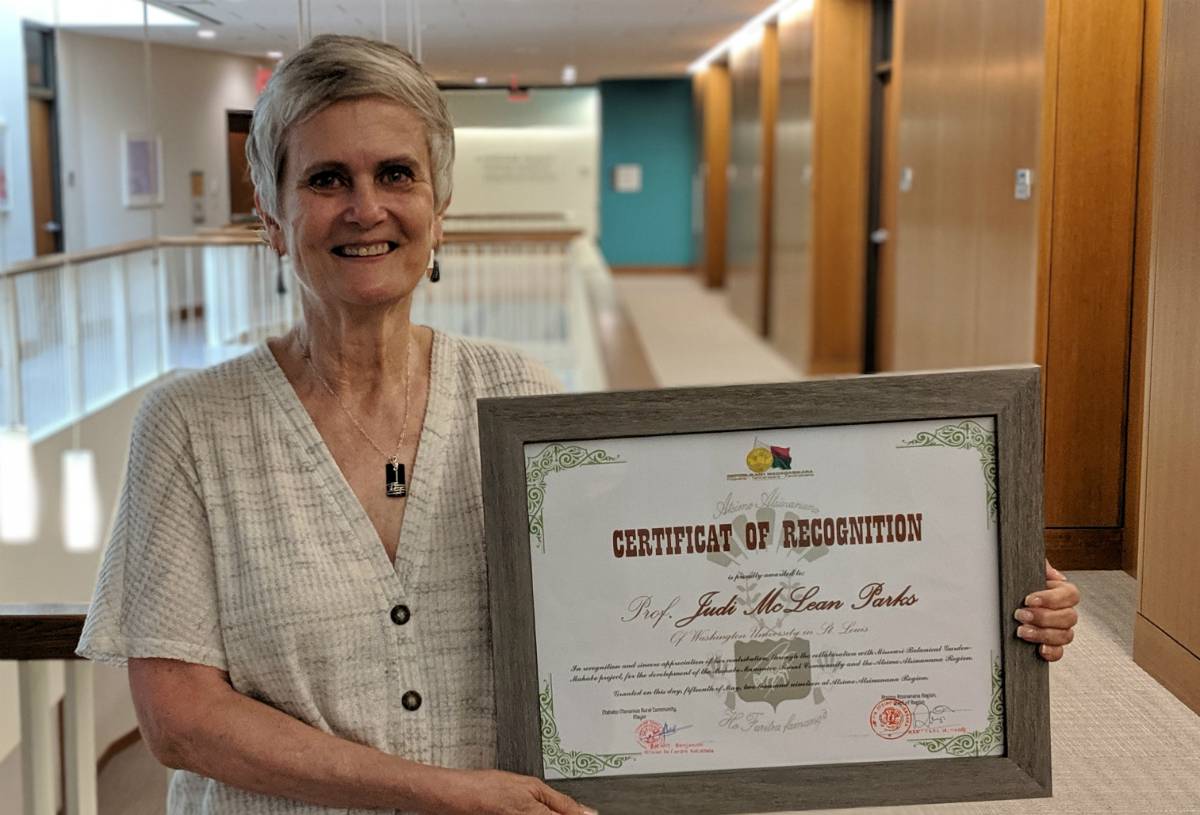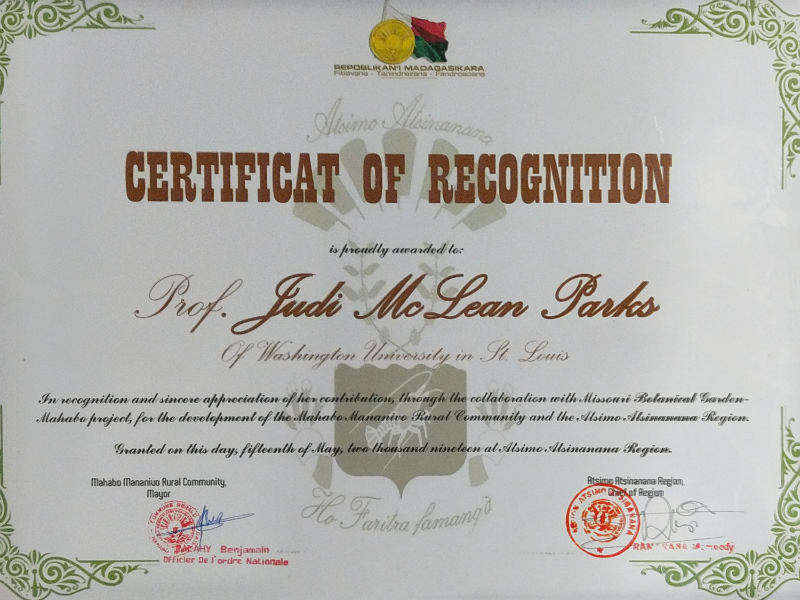Recognition from Malagasy government touches Parks
- August 8, 2019
- By Kurt Greenbaum
- 3 minute read

A WashU Olin professor has been honored with a certificate of “recognition and sincere appreciation” from the government of Madagascar for her contributions and the development of the Mahabo region where she’s worked with students for more than a decade.
An official from the country’s federal government made an arduous, hours-long journey from the nation’s capital of Antananarivo to recognize Judi McClean Parks in May while she was working with yet another class of students.
Since 2007, Parks has worked on projects in collaboration with the Missouri Botanical Garden, projects designed to guide remote Malagasy citizens to create sustainable solutions to everyday problems that affect their lives while protecting the region’s ecology.
Parks, Olin’s Reuben C. and Anne Carpenter Taylor Professor of Organizational Behavior, said she was grateful for the recognition from the Malagasy government.
‘My heart and soul’
To me personally it means a lot. This class is literally my heart and soul. This is my ‘heart’ course. It’s the one that gives me the right to explain myself when I meet St. Peter at the pearly gates. It validates the work we’re doing.
Judy McLean Parks
The course takes as many as 20 students to a remote corner of the island nation each May to work with Malagasy residents. The projects stem from issues the residents themselves raise, and some have been revisited for further development and refinements from year to year. More than 160 students have participated.
The projects derive from a careful drill-down to discern the root cause of a larger issue. For example, Malagasy women might say they want healthier children—a problem too broad to tackle. By drilling down, Parks and the students discover that poor nutrition, a slow-growing crop (rice) and a long “season of death” (with nothing to harvest) underpins the core issue.
Ultimately, they realize a program of field enrichment could help Malagasies address the core of issue of sickly babies.
“The projects do spread, but they spread slowly,” Parks said. “We let people adopt or not adopt projects we bring to them.”
The garden connection
The botanical garden connection stems from the ability of Olin faculty and students to help the Malagasies develop sustainable solutions to their problems without stripping bare the resources of the rich flora and fauna in the region. Parks works closely with Armand Randrianasolo, a Madagascar-born PhD botanist from the botanical garden who is now a US citizen.
Parks said she was deeply honored by the government’s gesture and humbled by the way they presented it.
“They were very proud to be presenting it in English,” she said. “And they wrote the whole certificate in English so it would be for me.”
The presentation came at the same time the students presented their projects to the Malagasies they hoped would adopt their solutions.
“It was validating because it felt for so long that this was an isolated program,” Parks said. “I don’t want to diminish what the students get out of it. They can have the experience of actually helping someone and seeing how the largest portion of the world actually lives.”
Certificate from the Malagasy government
“To me personally it means a lot. This class is literally my heart and soul.”

Media inquiries
For assistance with media inquiries and to find faculty experts, please contact Washington University Marketing & Communications.
Monday–Friday, 8:30 to 5 p.m.
Sara Savat
Senior News Director, Business and Social Sciences
